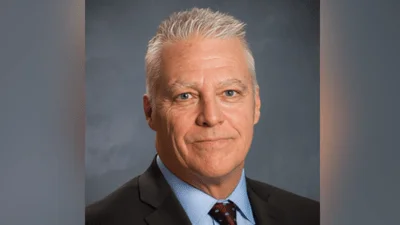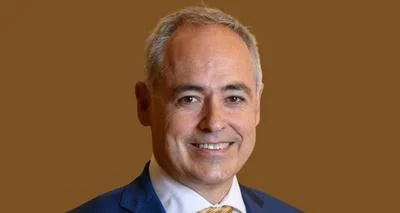Robert Miller, former highway commissioner for the Algonquin Township Road District | YouTube
Robert Miller, former highway commissioner for the Algonquin Township Road District | YouTube
After a seven-month investigation, the state’s attorney for McHenry County announced Thursday that no criminal charges would be brought against Robert Miller, former highway commissioner at the Algonquin Township Road District.
While serving as commissioner of the Algonquin Township Road District, Miller was accused of spending road district money for his own private interests. He was also accused of illegally buying two plane tickets to New Orleans for people not employed by the road district and supplying the Illinois Railway Museum with road district salt.
State's Attorney Patrick Kenneally revealed his office's findings in a 52-page document, which stated: “There was insufficient evidence to establish beyond a reasonable doubt that Miller committed a criminal offense."

State's Attorney Patrick Kenneally
He said that although Miller was not charged, there were problems that cast doubt on the effectiveness of the district.
“Though not appropriately redressed through criminal charges, this report has plainly set forth spending and decision-making that do more than merely create an appearance of incompetence, guile and impropriety," Kenneally said. "We believe, however, that these failures go beyond any individual and point to a larger, systemic breakdown.”
The investigation concerning Miller may not be over, however.
"New allegations seem to be surfacing regularly," Kenneally said. "Our investigation into these new matters will continue."
Kenneally was tasked with investigating the original allegations against Miller when the McHenry County Sheriff’s Office and Illinois State Police declined to do any investigation about the accusations.
Usually, a state’s attorney does not investigate criminal allegations. While a state’s attorney does have the authority to investigate criminal matters, this authority is limited in that they must ordinarily rely on police agencies to conduct criminal investigations.
“It is important to understand how taxing this investigation has been on the resources of our office as it is neither staffed nor resourced to conduct such an expansive investigation," Kenneally said. "We employ lawyers, not detectives. Our office has only one full-time investigator who is a sworn peace officer and has experience conducting criminal investigations.”
The fact that the allegations went public before the investigation occurred also was an impediment, Kenneally said.
“It must be said that our investigation was undermined by the public nature of the allegations," he said. "An element of candor was lost when interviewing witnesses who had time to prepare their responses to anticipated questions, as opposed to answering extemporaneously. Moreover, a number of witnesses refused to speak with us as they did not want to involve themselves in the evolving spectacle.”






 Alerts Sign-up
Alerts Sign-up